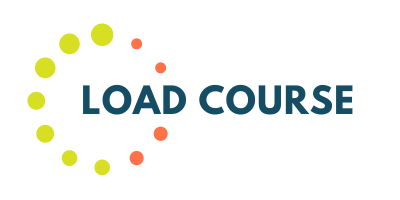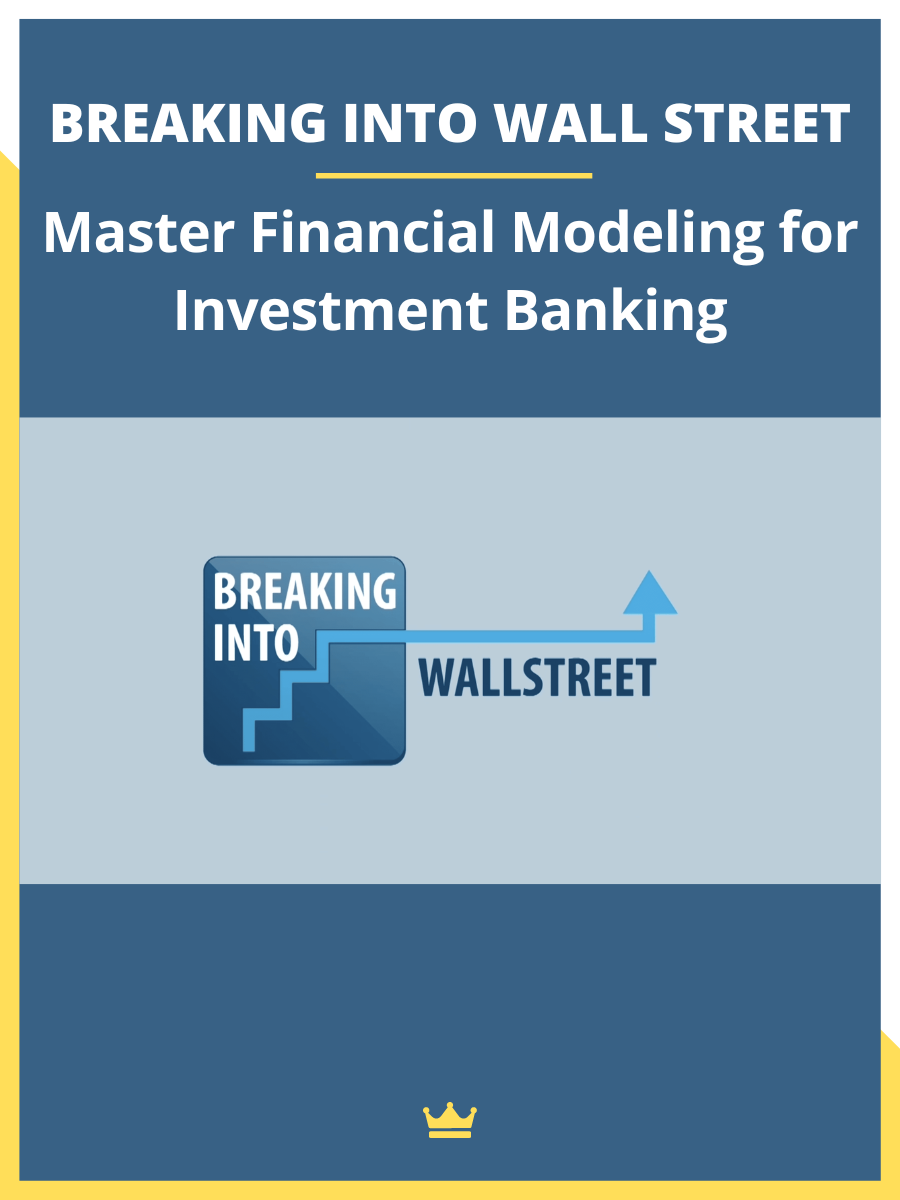BREAKING INTO WALL STREET – Master Financial Modeling for Investment Banking
$397.00 Original price was: $397.00.$109.00Current price is: $109.00.
See all our reviews
BREAKING INTO WALL STREET – Master Financial Modeling for Investment Banking: The Complete Professional Training Course
Comprehensive Financial Modeling Mastery Program Overview
BREAKING INTO WALL STREET Financial Modeling for Investment Banking represents the industry’s most comprehensive training program, designed to transform aspiring finance professionals into expert financial analysts and investment banking professionals. This master financial modeling course provides unparalleled depth in accounting fundamentals, valuation methodologies, and advanced financial modeling techniques essential for success in investment banking careers.
What Makes This Investment Banking Course Different
Our financial modeling mastery program delivers what industry professionals call “Deal Experience in a Box” – providing virtual deal experience through 10+ comprehensive, real-world investment banking case studies from global markets. Unlike theoretical courses, every module focuses on practical financial modeling skills that investment banks, private equity firms, and hedge funds demand from top candidates.
What Is The BIWS Financial Modeling Mastery Course?
The BIWS Financial Modeling Mastery Course is a step-by-step program that teaches you how to build real-world financial models used by analysts and associates at top-tier investment banks and buy-side firms. Through 308+ training videos and 15+ real-life global case studies, you’ll develop deep expertise in:
-
Accounting
-
Valuation
-
Merger Models
-
LBO Models
-
Equity & Debt Financing
-
IPO and Private Company Valuation
This course is frequently described by users as “deal experience in a box.” It simulates the real work done by professionals in investment banking and private equity, helping you build deal-ready models and answer technical interview questions with confidence.
Complete Course Curriculum: 16 Specialized Modules
Foundation Modules: Building Core Competencies
Module 0: Financial Modeling Study Plans and Quick Reference Guides
- Strategic learning pathways for financial modeling certification
- Quick-reference materials for investment banking interviews
- Excel modeling best practices and shortcuts
Module 1: Financial Modeling Overview and Core Concepts
- Time value of money calculations and applications
- Present Value and Net Present Value fundamentals
- Discount rate determination and Internal Rate of Return (IRR) analysis
Module 2: Accounting Concepts, Financial Statements, and Interview Questions
- Financial statement analysis for investment banking professionals
- Accounting interview questions with detailed solutions
- Operating leases, Net Operating Losses, and Deferred Tax treatments
Module 3: Advanced Accounting for Investment Banking
- Book Value vs Market Value debt analysis
- Equity investments and Noncontrolling Interests accounting
- Stock-based compensation tax implications
- FIFO vs LIFO inventory methods and pension accounting
Applied Financial Modeling: Real-World Case Studies
Module 4: 3-Statement Modeling Case Studies (Toro and Atlassian)
- 60-minute financial modeling tests with time-pressured scenarios
- 2-hour comprehensive modeling exercises featuring real companies
- Investment recommendations based on financial projections
Module 5: Advanced 3-Statement Projections (EasyJet)
- 3-hour intensive modeling examination for airline industry analysis
- Debt vs Equity financing decision frameworks
- Revenue driver modeling using Load Factors and Passenger Yields
Module 6: Equity Value, Enterprise Value, and Valuation Multiples
- Enterprise Value calculations for US GAAP and IFRS companies
- Valuation multiples analysis across different accounting standards
- Equity Value determination including complex adjustments
Module 7: DCF Valuation Case Study (Steel Dynamics)
- Discounted Cash Flow modeling from blank spreadsheets
- Free Cash Flow projections for manufacturing companies
- Public comps and precedent transactions analysis
Module 8: Advanced DCF and Take-Home Case Study (Jazz Pharmaceuticals)
- 1-week comprehensive valuation project simulating real investment banking work
- Pharmaceutical industry modeling with pipeline drug valuations
- Mid-year convention and stub period adjustments
Specialized Investment Banking Applications
Module 9: Valuation Application and Investment Recommendations
- Stock pitch creation for hedge fund interviews
- Equity research report development
- Investment banking pitch book construction
Module 10: M&A Concepts and Merger Modeling (Builders FirstSource/BMC)
- $2.5 billion acquisition analysis with complete merger models
- Accretion/dilution analysis and contribution studies
- M&A valuation methodologies and deal structuring
Module 11: Advanced Merger Models (Multiple Global Case Studies)
- International M&A transactions including Fortum/Uniper deal
- Stock vs Asset purchase accounting treatments
- Sum-of-the-Parts valuations for complex corporate structures
Module 12: Leveraged Buyout Modeling and Private Equity Analysis
- LBO model construction from basic to advanced levels
- Private equity case studies including Bain Capital and Apollo transactions
- IRR calculations and money-on-money multiples analysis
Module 13: Complex LBO Models (Viridor and Cars.com)
- KKR buyout analysis with dividend recaps and management earn-outs
- Credit analysis for equity investors and debt lenders
- Open-ended take-home private equity case studies
Module 14: Private Company Valuation and IPO Modeling
- Private company adjustments and IPO valuation techniques
- Reverse merger analysis vs traditional M&A structures
- Korean market case study (Kakao/Daum) for international exposure
Module 15: Debt, Equity & Convertible Securities (Netflix)
- Capital structure optimization for $1.5 billion financing
- Bond valuation, duration, convexity, and option analysis
- Convertible bond modeling with dilution calculations
Module 16: Professional Certification Quiz
- Comprehensive assessment of financial modeling competency
- Investment banking interview preparation verification
Proven Training Methodology: Video-Based Learning Excellence
Comprehensive Learning Resources
- 308 professional video tutorials created by experienced investment bankers
- Step-by-step Excel modeling demonstrations
- Word-for-word transcripts for efficient review
- Detailed written guides complementing video instruction
Interactive Practice Components
- Before and After Excel files for hands-on practice
- Hundreds of quiz questions with complete explanations
- Progress tracking and note-taking capabilities
- Custom playlists for targeted review sessions
Real-World Application: Global Case Study Portfolio
Our financial modeling course features 15+ in-depth case studies from companies across North America, Europe, Asia, and Australia, including:
- Target and Best Buy (US) – Retail industry analysis
- Atlassian (Australia) – SaaS company modeling
- EasyJet (UK) – Airline industry projections
- Vivendi (France) – International media valuations
- NichiiGakkan (Japan) – Healthcare services LBO
- Great Canadian Gaming (Canada) – Gaming industry analysis
- Fortum/Uniper (Finland/Germany) – Cross-border M&A
Professional Expertise and Industry Recognition
Expert-Led Instruction
Our investment banking training is developed and delivered by seasoned investment banking professionals with extensive Wall Street experience. The curriculum reflects current industry best practices and real-world applications used daily at top-tier investment banks.
Proven Track Record
Over 48,569+ students, entry-level professionals, and career changers have successfully used Breaking Into Wall Street to:
- Master financial modeling for investment banking roles
- Win competitive interviews at bulge bracket banks
- Secure high-paying positions in investment banking, private equity, and hedge funds
Student Success Stories
“Great news, I just got a full-time offer in IB J.P. Morgan in London!! Your courses have been absolutely key in achieving this.” – Recent Graduate
Competitive Advantages for Investment Banking Success
Interview Preparation Excellence
- Accounting knowledge verification for investment banking interviews
- Valuation walk-through practice with detailed explanations
- Merger model and LBO model assumption adjustment scenarios
- Financial modeling skills demonstration capabilities
On-the-Job Performance Enhancement
- Real-world techniques applicable immediately in investment banking roles
- Global perspective through international case studies
- Advanced Excel skills for financial modeling efficiency
- Industry-specific knowledge across multiple sectors
Career Advancement Support
- Virtual deal experience equivalent to months of on-the-job training
- Conceptual understanding that investment banks seek but rarely find
- Practical expertise to outperform peers in financial modeling tasks
Who Should Take This Course?
This course is ideal for:
-
Students preparing for investment banking, private equity, or hedge fund interviews
-
Career changers looking to break into high-paying finance roles
-
Entry-level analysts who want to accelerate on-the-job performance
-
Professionals pursuing roles in equity research, corporate finance, or valuation advisory
Course Delivery and Accessibility
Flexible Learning Format
- Self-paced online training accommodating busy professional schedules
- Mobile-compatible content for learning anywhere
- Lifetime access to course materials and updates
- 24/7 availability for interview preparation and skill refreshing
Technical Requirements
- Microsoft Excel proficiency recommended
- Internet connection for video streaming
- Computer access for hands-on modeling exercises
Conclusion: Your Gateway to Investment Banking Excellence
BREAKING INTO WALL STREET – Master Financial Modeling for Investment Banking represents the definitive professional training solution for aspiring investment banking professionals. This comprehensive program uniquely combines theoretical knowledge with practical application, delivering virtual deal experience through real-world case studies that investment banks use for actual client engagements.
After you make payment, we will send the link to your email then you can download the course anytime, anywhere you want. Our file hosted on Pcloud, Mega.Nz and Google-Drive
LOADCOURSE – The Difference You Make
More Courses: BUSINESS & SALES
Q & A
Related products
Business & Sales
Business & Sales
Business & Sales
Business & Sales
Business & Sales
Business & Sales
Business & Sales















Reviews
There are no reviews yet